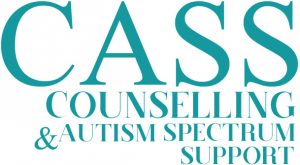Many neurodivergent children have a diagnosis of autism and “50% of parents of autistic young people reported their child had been unlawfully sent home from school or denied an education” in a 2019 survey.
Many of our clients are out of education, and because of this, we have developed a very successful program to support children and young people back into education called “Six Steps to Seven”.
CASS provides innovative neurodivergent-specific support to enrich the lives of autistic people. Across all of our services, there is a focus on improving quality of life.
Autistic children often find their school environment very demanding and sometimes unbearable to tolerate which can lead to unfair ‘school refusal’ or absences.
In 2020 over 40,000 autistic pupils (31%) were persistent absentees from schooling.
Behaviour associated with neurodivergent is at times misunderstood to be disobedience because of a lack of awareness. Therefore, autistic people are vulnerable to being excluded from school.
We are concerned that autistic children do not have equal rights to education and are missing a significant amount of schooling. Therefore, we are dedicated to supporting autistic pupils and their families to gain a deeper understanding of their educational experiences, the impact this and to provide additional services for their learning.
Earlier this year Education editor Branwen Jeffreys wrote an article for BBC news about how children need more support to get them into school full-time. This is especially true since there has been a huge leap in children in mental health crisis during the pandemic.
A report by children’s commissioner Rachel de Souza describes how pupils with special educational needs and disabilities (SEND) are being let down in schools in England and that the reasons for school absenteeism are often “highly individual and complex”.
Education Secretary, Nadhim Zahawi, announced a ‘strict’ and ‘non-negotiable’ approach to school attendance when the Government published its Schools Bill in May this year.
The Government plans to issue central guidance for fining parents when their children are absent from education.
However, we feel that these measures misunderstand why autistic pupils don’t attend school. Autistic young people do often want to attend school but find the school environments inaccessible.
“The Schools Bill must be amended to focus on the changes schools need to make – to environment, culture, and teaching practice – to enable autistic children to attend and learn. If mainstream education policy continues to treat children with SEND as an afterthought, then the Government’s SEND Review will have no impact.”
For more information about our “Six Steps to Seven” program email us at info@casscounselling.co.uk
Further information:
news/compelling-attendance-wont-result-more-autistic-pupils-school
43,040 (30.1%) autistic pupils were persistent absentees in 2020/21.
Exclusions of autistic children have more than doubled in the last ten years, from 2,282 in 2010 to 5,197 in 2020. Statistics: exclusions – GOV.UK


